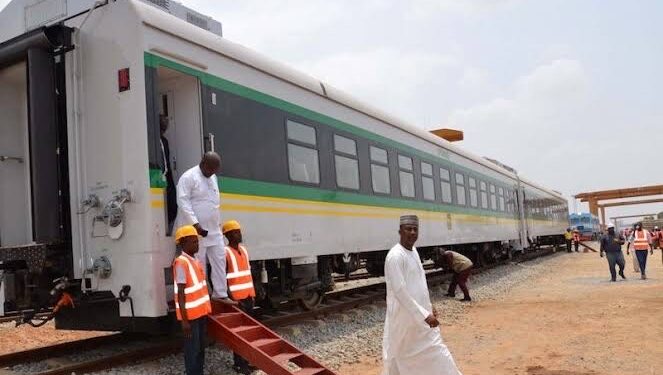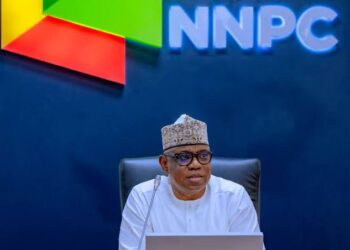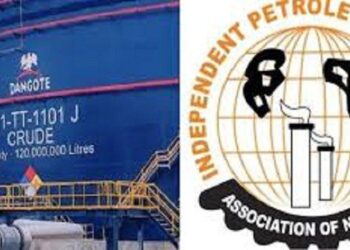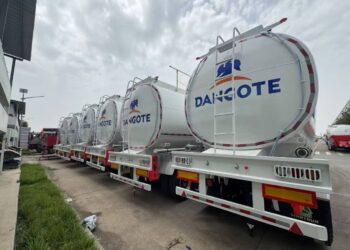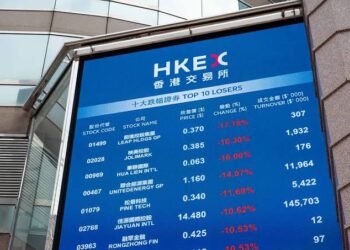By: Amadi Vincent Uzoma
According to BusinessDay analysis, growth in the road and rail sub-sectors has lifted Nigeria’s transport and warehousing industry out of the recession it has been experiencing since the second quarter of 2023. The latest gross domestic product from the National Bureau of Statistics (BES) shows that the sector in fact grew by 3.33% in the first quarter of this year, after falling for three consecutive quarters.
“The industry grew 3.33% in the first quarter. This ratio represents an increase of 32.33 percentage points compared to the previous quarter. The industry’s contribution to GDP was 1.
18%, relatively equal to the 1.18% recorded in the previous year and higher than 1.10% in the fourth quarter,” the report said.
Muda Yusuf, director general of the Center for Promotion of Private Enterprises, said infrastructure development and improved safety around roads may have contributed to the growth in traffic. “Road transport accounts for nearly 90% of our transport. And in terms of insecurity, I don’t think it’s as bad as before. People are now moving freely from Kaduna to Abuja and the Northern regions,” he added.
Adeola Adenikinju, professor of economics and president of the Nigerian Economic Society (NES), said the easing of security concerns and compliance with some rail projects undertaken by the previous administration also contributed part to the growth. “In addition, when air tickets became expensive, some people chose road and rail. Analysis of the GDP report shows 3 out of 6 sub-sector activities growing faster. Road transport grew 5.58% in the first quarter compared to negative growth of 33.76% in the previous quarter and rail and pipeline transport reached a two-year high of 66.63% compared to 10.39%.
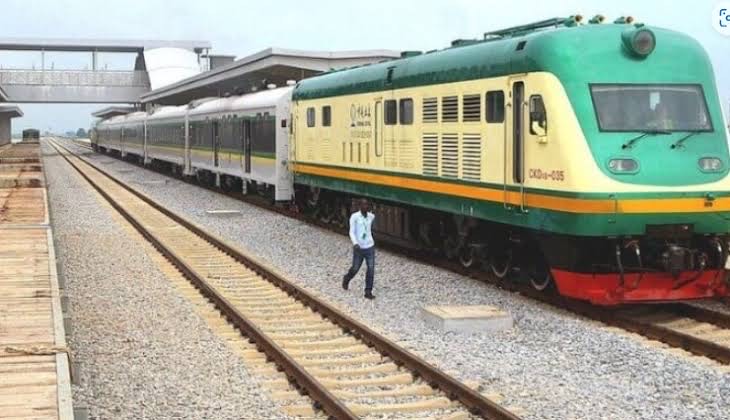
Transportation services increased from 3.42% to 5.93%. Water, postal, and slow delivery services were at 4.34% and 2.40% respectively. The air travel industry enters a recession for the first time since the first quarter of 2021. “The recovery in the transport sector looks promising but is not yet something to celebrate. This is clearly due to the base impact of the large slowdown recorded throughout most of 2023 in the rail and road transport industry. Temitope Omosuyi, Chief Investment Strategist at Afrinvest Limited said that although the industry performance ratio at N865.4 billion showed an improvement from 2023, it was still about N1.0 trillion lower recorded in 2021 and 2022, respectively.” He added that it is worth noting that the railway sector has enjoyed some peace due to the reduction in kidnappings that scared users in 2023 and the opening of the Lagos Mass Transport Railway may also interest in this means of transportation. “For trucking, the big shock to the industry came from the sudden removal of subsidies last year.
The absence of major new shocks may have brought some support to the sector. The removal of fuel subsidies last May tripled the price of petrol from 184 naira to more than 600 naira, making public transport providers such as buses, three-wheelers, and autos the machine must increase the shipping price. This has affected those who rely on public transportation, including private-sector workers.
With higher transportation passages, numerous Nigerians are constrained to apportion a significant parcel of their pay rates to cover commuting costs, taking off small for other basic needs like nourishment and lease.
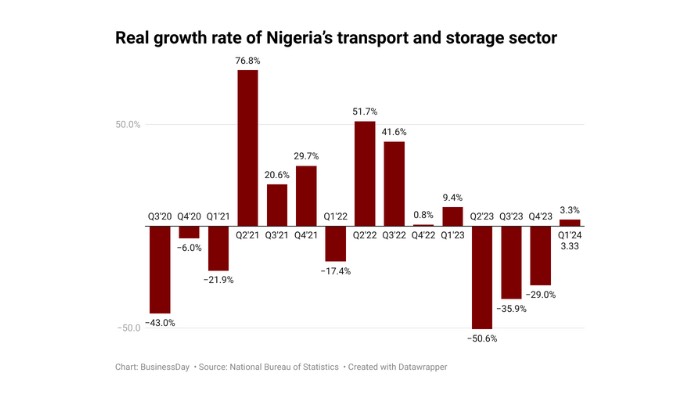
Information from the NBS shows that the normal retail cost paid by buyers for petrol final month was N701.2, an increment of 176 percent from N254.1 in April final year. The normal retail cost of diesel too rose from N842.3 per liter in April 2023 to N1,415.1 per liter within the same period of 2024.
The increment within the fetched of petrol driven to the normal passage paid by commuters for transport ventures inside the city dropped because it rose year-on-year by 49.6 per cent to N969.3 from N648.2. The normal passage paid by commuters for transport travel intercollegiate per drop was N7,152.9, up from N3,992.4.
“The nation is back to commerce as regular as individuals have balanced to the prices. For rail, the Lagos-Ibadan railroad might have been a key driver within the segment recuperation. We have seen footing with commuters utilizing rail as contradicted to road,” Gbolahan Ologunro, portfolio supervisor at FBNQuest, said.
Information from the NBS shows that the entire number of travelers that voyage through the rail framework rose for the third straight quarter to 672,198 in Q4 from 594,348 within the past quarter. The volume of goods/cargo transported stood at 119,286 tons, up from 81,963 tons.
Concurring to Samuel Odewumi, a teacher and past dean of Lagos State University’s School of Transport and Coordinations, transportation may be a determined demand and when the transportation sector freezes, the whole financial life of the nation comes to a stop, because it is just like the circulation system for the economy
Adenikinju of NES famous that the development within the transport division will drive down generation costs, move forward efficiency within the economy and advance upgrade the execution of other divisions.


